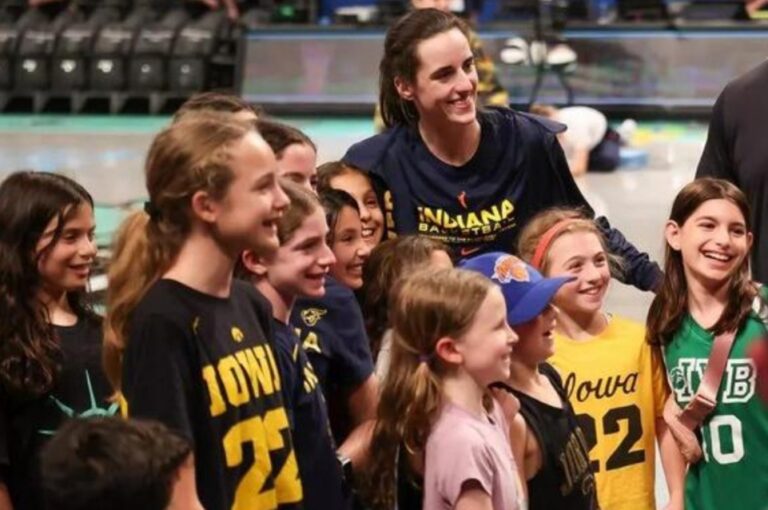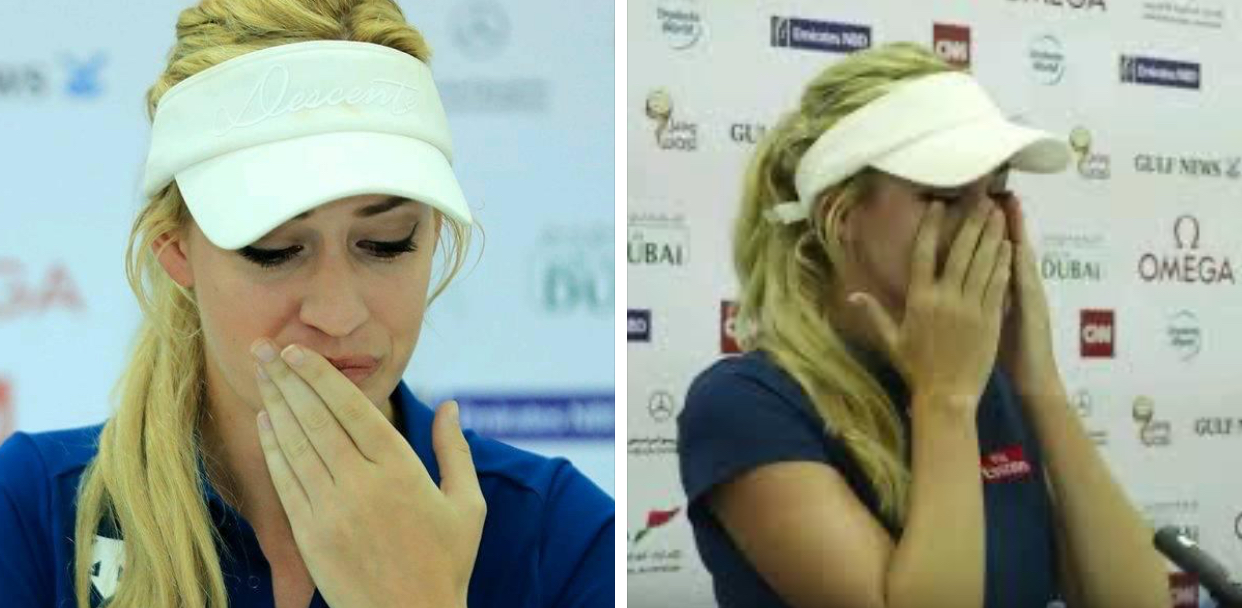Clark’s impact as a WNBA rookie is unmistakable, evidenced by her skyrocketing jersey sales and the impressive attendance figures she draws to games. As a standout college basketball player at Iowa, Clark was always in the spotlight, both on and off the court. Her historic career with the Hawkeyes made her one of the most beloved college basketball players in recent memory.
Clark’s exploits on the court, including her remarkable ability to shoot from long range and make spectacular plays, attracted fans and celebrities alike to Iowa games. Her decision to enter the 2024 WNBA Draft was met with widespread anticipation, with many expecting her to be the No. 1 overall pick by the Indiana Fever.
When the Fever selected Clark as the top pick, her influence was immediate. Fanatics reported that the first batch of her No. 22 jerseys sold out within minutes, making it the top-selling jersey ever. This prompted a wave of frustration on social media from fans eager to get their hands on her jersey. In response, Fanatics announced pre-orders for the next batch, slated to arrive in August.
The draft itself set viewership records, drawing more than four times the audience compared to the previous year. ESPN’s coverage averaged 2.45 million viewers, with a peak of 3.09 million, breaking the previous record set in 2004 when 601,000 people watched.
Clark’s popularity also translated into increased attendance at WNBA games. By mid-June, an estimated 400,000 fans had attended games since the season began on May 14. More than half of these games were sellouts, with over 90 percent of arenas filled, marking a 17 percent increase from the previous year. Additionally, television viewership rose significantly, with 1.32 million viewers tuning in each night, up from just over 460,000 the previous season.
Despite the surge in popularity and increased fan engagement, the WNBA is still projected to lose money in the 2024 season. According to The Washington Post, league executives anticipate a loss of approximately $50 million, even with the addition of stars like Clark, Angel Reese, and Cameron Brink. The NBA currently owns about 60 percent of the WNBA, and since its inaugural season in 1997, the league has reportedly been losing $10 million annually.
NBA Commissioner Adam Silver acknowledged these financial challenges in 2018, but there is optimism about the future. Media executives believe a new broadcast rights deal could significantly boost the WNBA’s revenue, potentially tripling it to between $180 million and $200 million. Clark, with her immense popularity, is expected to play a pivotal role in ushering in a new era of growth and success for the league.



